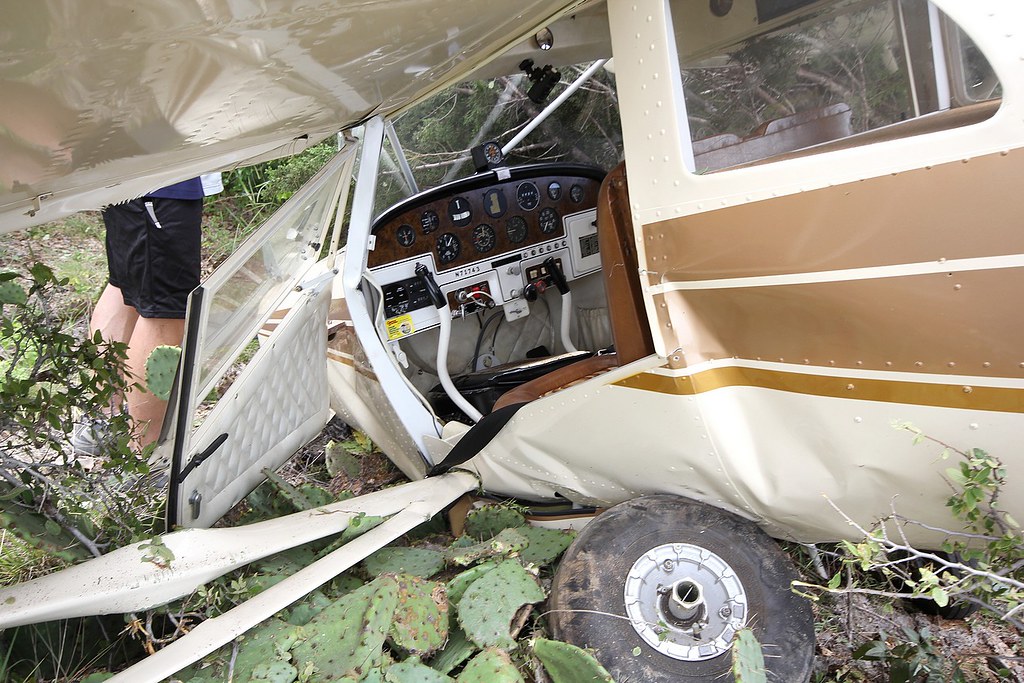830.5 Immediate notification.
The operator of any civil aircraft, or any public aircraft not operated by the Armed Forces or an intelligence agency of the United States, or any foreign aircraft shall immediately, and by the most expeditious means available, notify the nearest National Transportation Safety Board (NTSB) office, when:
(a) An aircraft accident or any of the following listed serious incidents occur:
(1) Flight control system malfunction or failure;
(2) Inability of any required flight crewmember to perform normal flight duties as a result of injury or illness;
(3) Failure of any internal turbine engine component that results in the escape of debris other than out the exhaust path;
(4) In-flight fire;
(5) Aircraft collision in flight;
(6) Damage to property, other than the aircraft, estimated to exceed $25,000 for repair (including materials and labor) or fair market value in the event of total loss, whichever is less.
(7) For large multiengine aircraft (more than 12,500 pounds maximum certificated takeoff weight):
(i) In-flight failure of electrical systems which requires the sustained use of an emergency bus powered by a back-up source such as a battery, auxiliary power unit, or air-driven generator to retain flight control or essential instruments;
(ii) In-flight failure of hydraulic systems that results in sustained reliance on the sole remaining hydraulic or mechanical system for movement of flight control surfaces;
(iii) Sustained loss of the power or thrust produced by two or more engines; and
(iv) An evacuation of an aircraft in which an emergency egress system is utilized.
(8) Release of all or a portion of a propeller blade from an aircraft, excluding release caused solely by ground contact;
(9) A complete loss of information, excluding flickering, from more than 50 percent of an aircraft's cockpit displays known as:
(i) Electronic Flight Instrument System (EFIS) displays;
(ii) Engine Indication and Crew Alerting System (EICAS) displays;
(iii) Electronic Centralized Aircraft Monitor (ECAM) displays; or
(iv) Other displays of this type, which generally include a primary flight display (PFD), primary navigation display (PND), and other integrated displays;
(10) Airborne Collision and Avoidance System (ACAS) resolution advisories issued when an aircraft is being operated on an instrument flight rules flight plan and compliance with the advisory is necessary to avert a substantial risk of collision between two or more aircraft.
(11) Damage to helicopter tail or main rotor blades, including ground damage, that requires major repair or replacement of the blade(s);
(12) Any event in which an operator, when operating an airplane as an air carrier at a public-use airport on land:
(i) Lands or departs on a taxiway, incorrect runway, or other area not designed as a runway; or
(ii) Experiences a runway incursion that requires the operator or the crew of another aircraft or vehicle to take immediate corrective action to avoid a collision.
(b) An aircraft is overdue and is believed to have been involved in an accident.

